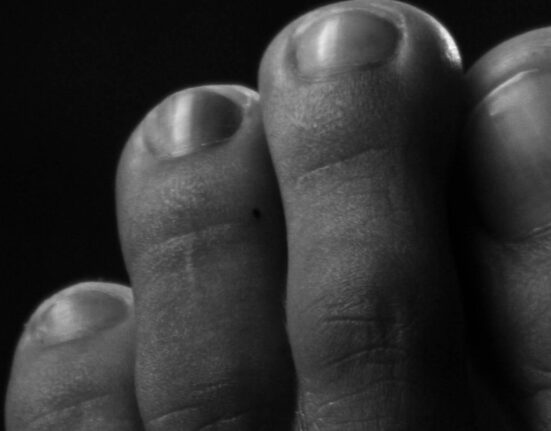ME/CFS. What is it?

Myalgic Encephalomyelitis/Chronic Fatigue Syndrome (ME/CFS) can emerge as a debilitating consequence of Long Covid, affecting a significant subset of individuals post-recovery. ME/CFS is a complex, poorly understood condition characterized by profound fatigue, post-exertional malaise, cognitive impairments, and unrefreshing sleep.
Who gets it?
People of all ages, genders, and backgrounds can develop ME/CFS, although it’s more prevalent in women and typically manifests between the ages of 20 and 50. Long Covid, marked by persistent symptoms lasting beyond four weeks after initial infection, often precedes the onset of ME/CFS, suggesting a potential link between the two conditions.
Typical Symptoms
Symptoms of ME/CFS in Long Covid survivors mirror those of classic ME/CFS but can be exacerbated by the initial viral infection. Profound and unrelenting fatigue, not alleviated by rest, is a hallmark feature. Post-exertional malaise, where physical or cognitive exertion worsens symptoms, can be severe and prolonged, sometimes lasting days or weeks. Cognitive dysfunction, often referred to as “brain fog,” encompasses difficulties with concentration, memory, and processing information. Sleep disturbances, including insomnia or unrefreshing sleep, contribute to the overall symptom burden.
Managing ME/CFS in Long Covid patients requires a multifaceted approach. While there’s currently no cure, various strategies aim to alleviate symptoms and improve quality of life. Firstly, pacing is crucial, involving the careful balance of activity and rest to avoid exacerbating symptoms. This often requires significant lifestyle adjustments and prioritization of activities to conserve energy.
Cognitive behavioral therapy (CBT) and graded exercise therapy (GET) have been controversially used in managing ME/CFS, we do NOT advise GET as a form of ME/CFS management, CBT can be used to treat the psychiatric symptoms associated with ME/CFS in the hands of an experienced physician familiar with treating complex chronic disease. (Please see episode 17 of Long COVID the Answers – “Dysautonomia, POTS and Long COVID” with Professor Ric Arseneau). Caution is warranted in Long Covid patients, as pushing too hard can exacerbate symptoms. GET should be approached cautiously and individualized to the patient’s capabilities. GET is dangerous and does harm for Long Haulers with PEM. Focusing on gentle, gradual increases in activity with the aid and assessment of a qualified, registered healthcare professional such as a physiotherapist, occupational therapist or doctor with experience of rehabilitation of people with ME/CFS or Long COVID is advised.
Relief:
Symptom management for ME/CFS (Myalgic Encephalomyelitis/Chronic Fatigue Syndrome) in Long Covid patients often involves both pharmacological and non-pharmacological approaches. Pharmacological interventions can target specific symptoms such as:
- Pain: Medications like non-steroidal anti-inflammatory drugs (NSAIDs) or low-dose tricyclic antidepressants may be used.
- Sleep Disturbances: Options include sleep aids or medications that help regulate sleep patterns.
- Mood Disorders: Antidepressants or anxiolytics can help manage depression and anxiety associated with ME/CFS.
Non-Pharmacological Approaches:
- Mindfulness-Based Stress Reduction (MBSR): Techniques such as meditation and yoga can reduce stress and improve overall well-being.
- Relaxation Techniques: Practices like deep breathing exercises and progressive muscle relaxation can help manage symptoms and enhance quality of life.
Support from Healthcare Professionals: Support from healthcare professionals is crucial for Long Covid patients dealing with ME/CFS. Multidisciplinary care teams can provide comprehensive, individualized support, including:
- Physiotherapists: Help manage physical activity levels and develop appropriate exercise plans.
- Occupational Therapists: Assist with daily activities and energy conservation techniques.
- Psychologists: Provide mental health support and coping strategies.
Research and Awareness: Research into the underlying mechanisms of ME/CFS in Long Covid is ongoing, aiming to identify targeted treatments and improve outcomes. In the meantime, raising awareness, promoting early recognition, and providing appropriate support are essential to addressing the challenges faced by Long Covid survivors with ME/CFS.
SolveME.org
https://solvecfs.org/wp-content/uploads/2021/09/PEM-REST-Combined.pdf
8. Really good toolkit found online https://www.omf.ngo/wp-content/uploads/2018/03/PEM-Avoidance-Toolkit-2018.pdf –
Credible Sources of Information:
1. Very good article from The Atlantic –
May be behind a paywall, but you can read on Apple News for free if subscribe to this. https://apple.news/Axt78LXNtQey-rdARe3UZjw
2. Paper about how when people were exercised who had PEM they were shown via muscle biopsies done before exercise and after to have muscle tissue damage post exercise – https://www.nature.com/articles/s41467-023-44432-3
Study Reveals Metabolic Dysfunction and Post-Exertional Malaise in Long COVID Patients
A study in Nature Communications (2024) uncovers metabolic dysfunction and post-exertional malaise in Long COVID patients. Muscle biopsies show mitochondrial function impairment and high-fatigable glycolytic fibers. Patients exhibit lower exercise capacity, increased amyloid-containing deposits, and abnormal muscle metabolomics compared to healthy individuals.
- Long COVID patients display metabolic dysfunction and post-exertional malaise.
- Muscle biopsies reveal impaired mitochondrial function and high-fatigable glycolytic fibers.
- Patients have reduced exercise capacity and increased amyloid-containing deposits in muscles.
- Symptoms post-exercise include muscle pain, fatigue, and cognitive issues.
- Abnormal muscle metabolomics observed in Long COVID patients.
3. Good information on PEM https://www.youtube.com/@LCCWYCD








